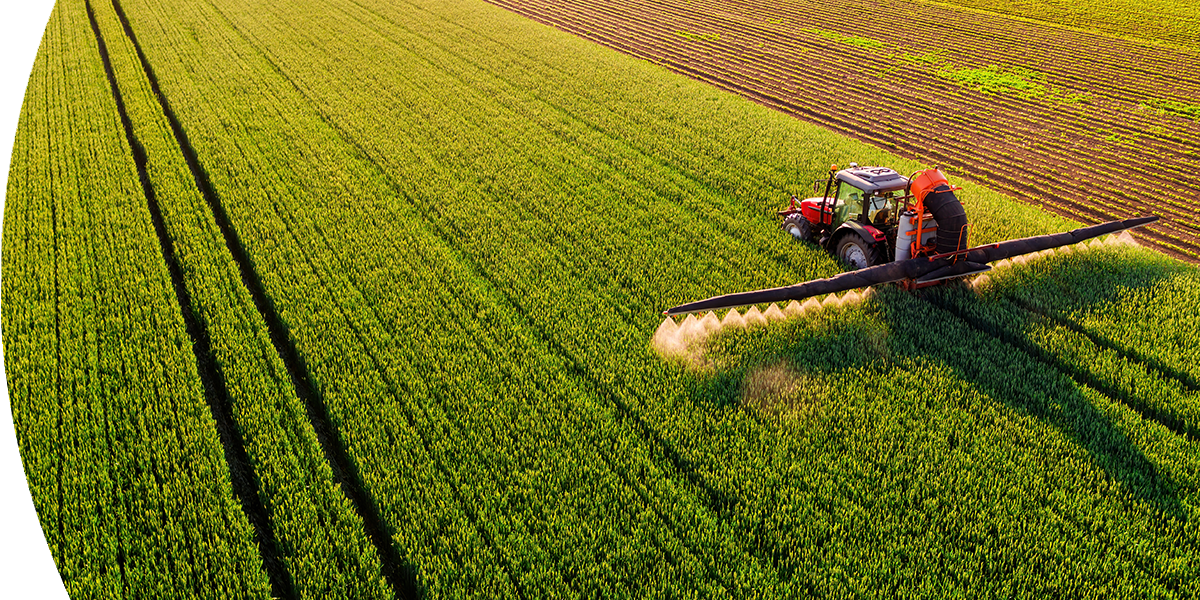





In 1963, the toxic chemical paraquat entered Canada as the active ingredient in Gramoxone®, an herbicide that became widely used in agriculture until its Canadian registration was discontinued in recent years. Gramoxone was commonly used by farmers several times a year, particularly for weed control in orchards or on farms where several crops were planted on the same land in a single growing season. Application occurred in a variety of forms, including via backpack sprayers, crop-dusters, and trucks with pressurized tanks—all of which exposed Canadian farmers and others to paraquat.
Scientific evidence links paraquat to Parkinson’s disease, a debilitating neurological disorder. Those with Parkinson’s disease experience motor problems—like tremor, rigidity, and slowed movement—and non-motor problems, which range from a loss of sense to dementia and psychosis. It has no cure, nor is there any treatment that can slow or reverse its progression. Overwhelming scientific literature and medical reports now confirm this connection.
Despite decades of research, the Swiss-based international corporation Syngenta AG and its subsidiaries (“Syngenta”), which are alleged to be responsible for designing, manufacturing, marketing, and selling products containing paraquat (Gramoxone®) in Canada, still reject that there is a causal link between paraquat and Parkinson’s disease.
As Parkinson’s disease progresses, it eventually robs patients of the ability walk, to feed themselves, get dressed, or bathe. Eventually, a full-time primary caregiver may be required, extracting an enormous financial and emotional toll on those suffering the disease as well as their family members. Paraquat has been banned in over 70 countries, including the entire European Union, China, Switzerland, and the United Kingdom.
Since 2021, Siskinds has represented the plaintiffs in proposed paraquat (Gramoxone®) class actions across Canada which allege among other things, that paraquat carries a hazard, namely the risk of developing Parkinson’s disease for those who used and/or were exposed to it, that the herbicide manufacturers failed to inform consumers of this associated healthhazard and how to protect themselves from it, that the manufacturers knew (or should have known) about the risk that paraquat would cause Parkinson’s disease, and that they failed to adequately study the issue before and after marketing.
Thousands of lawsuits have been filed against Syngenta in the United States and elsewhere by plaintiffs seeking damages from Syngenta arising from their use of or exposure to Syngenta’s paraquat products.
The paraquat class actions filed by Siskinds LLP in Québec and B.C. aim to help compensate class members for medical expenses, lost employment income, loss of the support of an affected relative, and other forms of suffering and loss resulting from exposure to Gramoxone.
Since filing the actions in Québec and B.C., some significant case developments in the paraquat lawsuit have occurred.
The Québec class action is progressing and is in the discovery phase before the trial of the common issues commences.
On August 9, 2024, the Supreme Court of British Columbia certified the class action against Syngenta AG and certain of its subsidiaries. The decision is reported at Gionet v. Syngenta, 2024 BCSC 1440.
Unlike the Québec action, the British Columbia action encompasses a broader national class with the exclusion of residents in Québec.
The British Columbia Court defined the class to include individuals in Canada, outside of Québec, who:
The Gramoxone Products are listed here.
The Defendants appealed the certification decision, and the Court of Appeal heard the appeal on May 8, 2025. The Court of Appeal’s decision is pending.
Herbicides impact all aspects of our lives. The prevalence of herbicides, and our dependence on them, underscores the importance of herbicide safety. Herbicide use should not come at the cost of harm to people.
It is important for herbicides to be properly regulated, thoroughly tested, and monitored for health impacts from ongoing use. Holding corporations accountable for their alleged failures to disclose herbicide risks encourages businesses to be upfront about the properties of any new herbicides coming into the market. Siskinds has extensive experience representing Canadians in consumer protection class actions.
If you have used and/or been exposed to Gramoxone (and its active ingredient, paraquat) and have Parkinson’s disease or if you know someone who has, Siskinds may be able to help. Please email: [email protected] or call us toll-free at 1.800.461.6166 to join the paraquat (Gramoxone®) lawsuits.